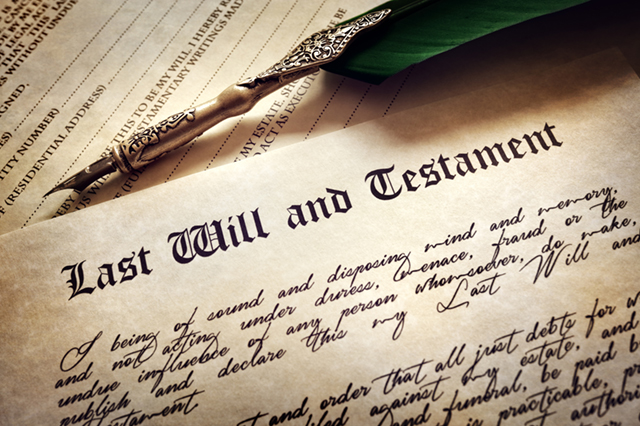What do you think about when you think about your legacy? Do you want to leave something behind for your children and grandchildren? How do you want people to remember you? How can you make a change in the world after you are gone?
Many people, when reflecting upon these questions, decide to leave a portion of their estate to charity. But how do you leave your estate to charity? Here’s our guide on how to leave a charitable bequest.
Choosing a Charity
If you decide to leave your estate to charity, you might have an idea in mind about what charity you should choose. Most people decide to leave money to charities for things that have touched their lives, or the lives of their loved ones. A cancer survivor might donate money toward cancer research, or a first-generation college student might donate money toward a scholarship fund.
Ask yourself what causes you care about, then do some research into the charities that support those causes. Consider the charity’s goals, mission statement and level of financial transparency before you make a choice.
A great resource for researching charities is the website CharityWatch, a watchdog group that determines a charity’s financial efficiency, accountability and fundraising tactics. You don’t want to leave all your money to a charity that might squander it. CharityWatch or other organizations like it can help you find an ethical and well-run charity. You can also consult your state consumer protection office or the Better Business Bureau.
Once you choose your charity, you can also name a back-up charity your bequest should go to if the original charity is no longer operating.
What to Leave Behind
If you plan to leave your entire estate to charity, that’s a very special and generous choice. However, most people will want to split their estate up between a charity and some loved ones. If you are only leaving some of your estate to charity, do not specify a specific dollar amount. It’s generally agreed upon that you should instead specify a percentage of your estate. This way, no matter how large or small your estate winds up being, your beneficiaries will still get the percentage that you planned for them.
Another option is to name a charity as the beneficiary of your life insurance plan, IRA or 401(k). A financial planner can help you update your plan’s beneficiary designation accordingly.
Remember that making a charitable bequest will also reduce the size of your estate – this leaves less money subject to estate taxes.
What assets would you like to leave to the charity? You can of course donate money, but you can also donate property (like real estate or some rare antiques) to the charity of your choice. Depending on the type of charity it is, the donation of property could be even more helpful than a monetary donation.
If you plan on donating property, make sure to contact the charity ahead of time and ask if there are any special arrangements that should be made.

Putting It in Writing
When you have decided on what you want to leave behind and to whom, the most important thing you can do is enlist the help of an estate planning attorney. They can make sure you do everything correctly, and don’t leave any unintentional loopholes behind. Your estate planning attorney will update (or create) your will or trust to include your bequest.
Make sure you get the correct name and address of the charity you plan on donating to. Many charities for similar causes have very similar names, and you don’t want a mix-up.
When making a charitable bequest, you can specify how you would like the money to be used. Donating to an aquarium? Maybe you want the money to go specifically to the jellyfish exhibit. Donating to a hospital? Maybe you want the money to find its way to the children’s wing. If you want to attach such strings to your donation, make sure you put that in writing in your will.
When Your Plans Are Made
After you have made all your plans and put them in writing, you don’t have to keep them to yourself. Contact the charity you plan on donating to and let them know! Many charities have legacy societies for people just like you, who plan to leave a charitable donation in their will.
This can also provide the opportunity to speak directly with the charity about how you want your money to be used, and even why you have chosen to donate in the first place. It’s a great way to get a glimpse at how your gift will impact the charity of your choice.
Learn more about wills and how to plan an estate.
Are you going to leave your estate to charity? Let us know which charity or organization in the comments below.
One Thought on “How to Leave Your Estate to Charity”
Leave A Comment
Comments are subject to moderation and may or may not be published at the editor’s discretion. Only comments that are relevant to the article and add value to the Your AAA community will be considered. Comments may be edited for clarity and length.













Homes for our Troops